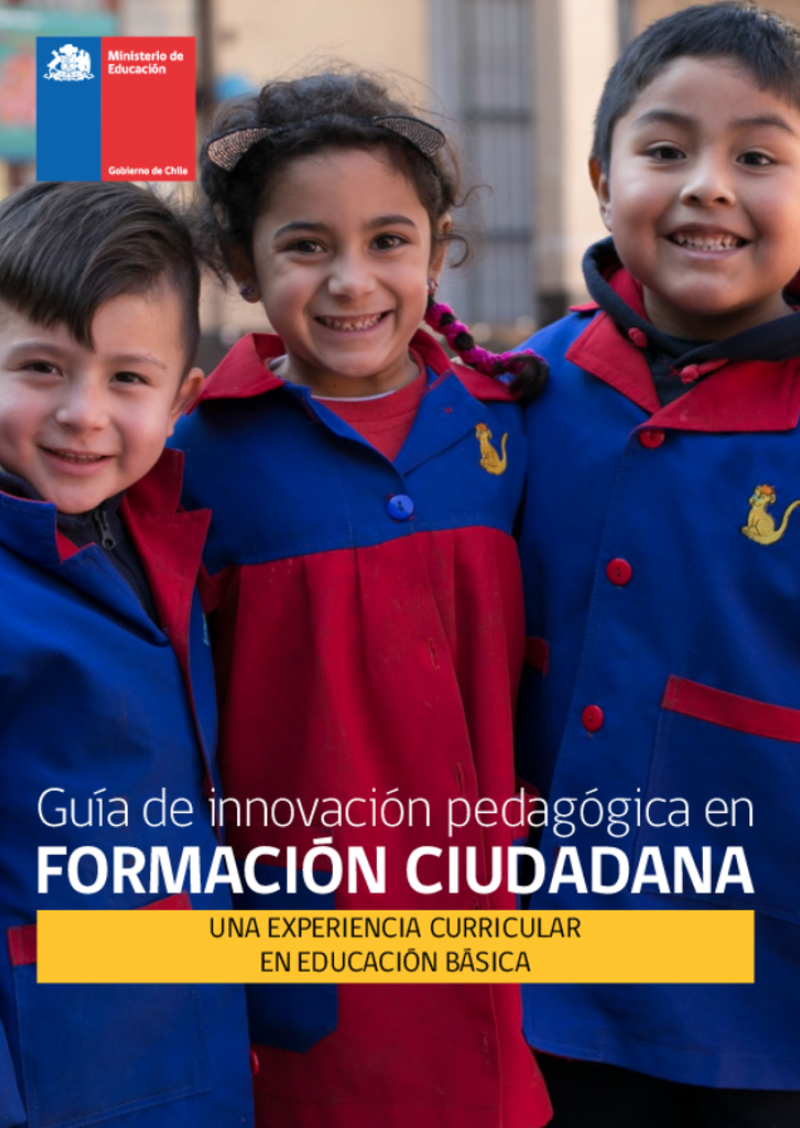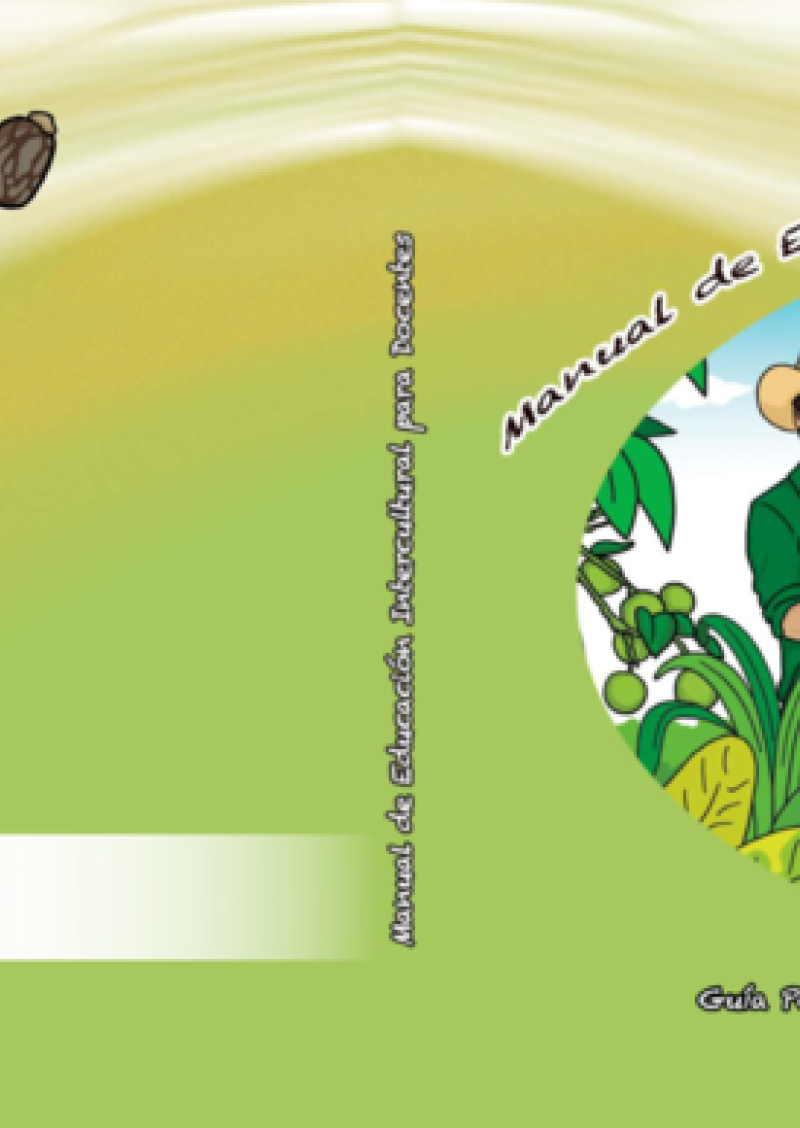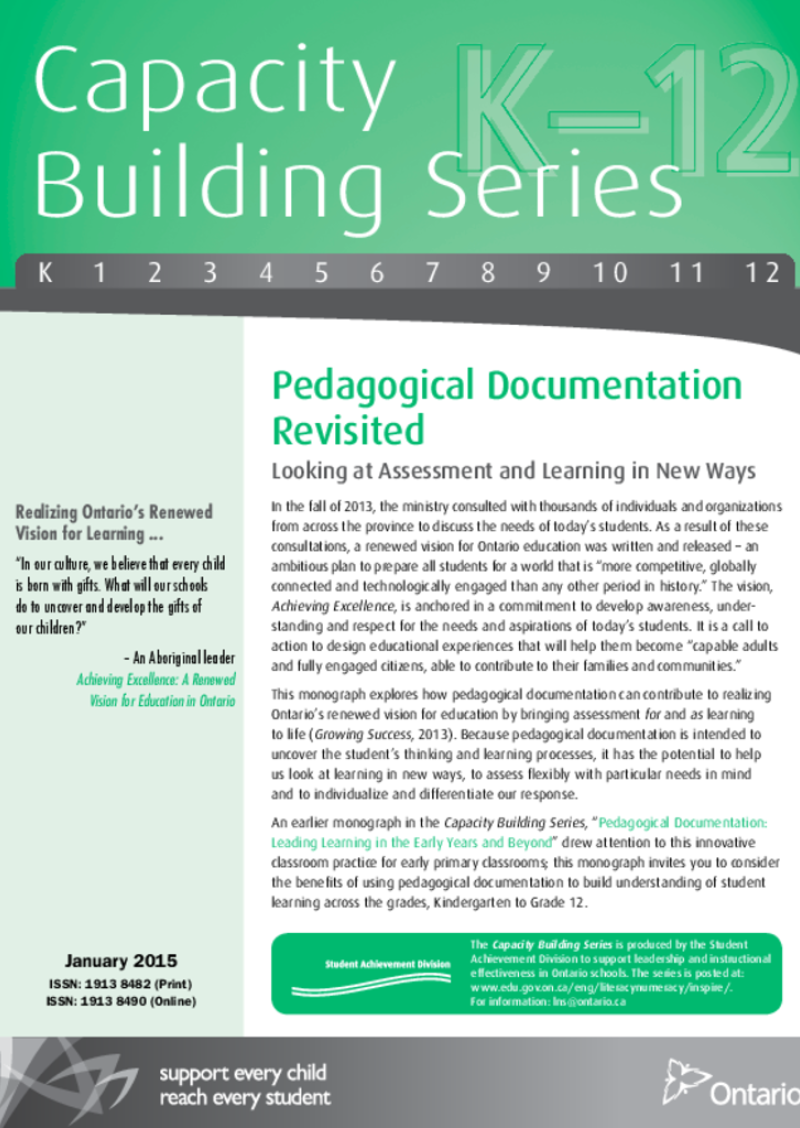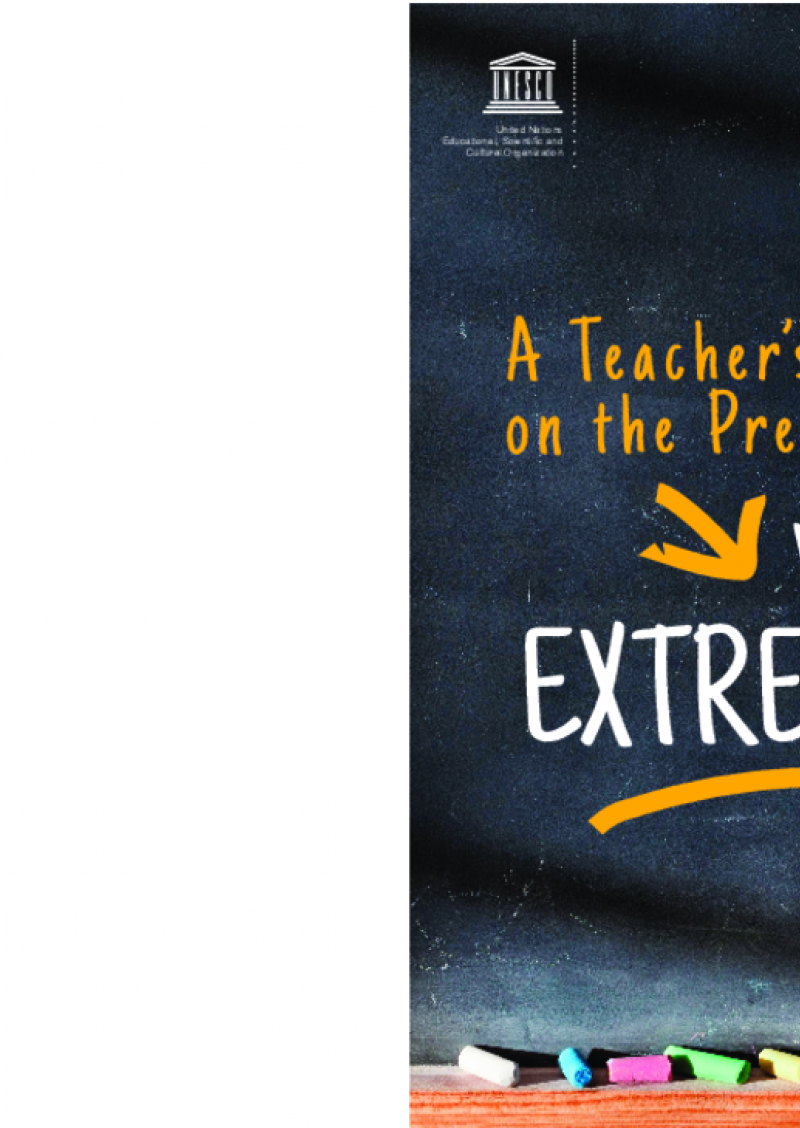Teacher Resource Centre
Displaying 1 - 10 of 10
Guía de innovación pedagógica en formación ciudadana
Esta guía ofrece a los docentes herramientas y estrategias para comprender y enseñar el concepto abstracto de ciudadanía en el aula. Proporciona recursos pedagógicos, actividades prácticas y ejemplos concretos para ayudar a los estudiantes a internalizar valores cívicos y democráticos. Además, incluye planes de lecciones y evaluaciones que facilitan para el docente la integración del tema en su práctica, promoviendo una educación integral y participativa. Con esta guía, los docentes pueden fomentar una comprensión profunda y crítica de la ciudadanía entre sus alumnos.
Ciencias de la computación para el aula - Manual para docentes (Primer ciclo primaria)
Este recurso incluye secuencias didácticas con actividades para realizar con los alumnos, así como fichas imprimibles con ejercicios. También contiene todas las instrucciones necesarias para que el docente pueda acompañar a los alumnos en la realización de estas actividades. El objetivo de estos recursos es enseñar a niñas y niños el funcionamiento de los computadores y las tecnologías digitales. Si este recurso ha sido concebido específicamente para el sistema educativo argentino, también se puede adaptar a otros contextos educativos hispanófonos. Se realizaron manuales similares para secundo ciclo de primaria, y ciclo secundario, que se podrán encontrar en este enlace.
Faire des manuels scolaires des outils de l'égalité entre les femmes et les hommes
Ce guide invite les enseignants à réfléchir aux inégalités de genre dans les manuels scolaires. Elle présente des bases légales et normatives sur lesquelles s’appuient cette question dans le cadre Français, des chronologies, infographies sur l’égalité de genre et l’élaboration des programmes. On y retrouve différents outils à destination des enseignants pour les accompagner au moment d’aborder ces sujets en classe dans différentes matières, ou plus largement dans la vie scolaire.
Manual de Educación Intercultural para Docentes
Este Manual a destinación de los docentes propone actividades y talleres con enfoque en la interculturalidad para realizar en el aula. Se divide en cuatro apartados: identidad colectiva e individual; el conocimiento de la historia y de las distintas manifestaciones culturales para fomentar la paz en el país; estereotipos y prejuicios para combatir las discriminaciones y el racismo; e interculturalidad para valorizar la diversidad y la convivencia.
Kit pédagogique - Idées, ressources, méthodes et activités pour l'éducation interculturelle informelle avec des adultes et des jeunes
Il s’agit de la réédition mise à jour d’un manuel originellement publié en 1995 dans le cadre de la Campagne Européenne de la Jeunesse contre le Racisme, la Xénophobie, l’Antisémitisme et l’Intolérance. Le document est pensé comme un outil accessible aux praticiens de l’éducation informelle auprès d’un public d’âge varié. Il est divisé en 2 parties : la première offre le contexte et le cadre pour aborder les activités et méthodes proposées dans la seconde partie. On y retrouve également une liste de documents écrits et audiovisuels en différentes langues parlées au sein de l’Europe mobilisable dans des cadres éducatifs.
Pedagogical Documentation Revisited
This monograph explores how pedagogical documentation can contribute to realizing Ontario’s renewed vision for education by bringing assessment for and as learning to life. Because pedagogical documentation is intended to uncover the student’s thinking and learning processes, it has the potential to help us look at learning in new ways, to assess flexibly with particular needs in mind and to individualize and differentiate our response.
Pedagogical documentation allows educators to see how thinking, learning, curriculum and assessment are intertwined. It offers them the opportunity to contribute to a fuller understanding of learning and to advance the research on effective practice, both locally and internationally.
A teacher's guide on the prevention of violent extremism
This is UNESCO’s first teacher’s guide on the prevention of violent extremism through education. It was developed in order to ensure its relevance in different geographical and socio-cultural contexts. Therefore, it can be used as it is or further contextualized, adapted and translated in order to respond to the specific needs of learners.
The guide seeks to:
- provides practical advice on when and how to discuss the issue of
violent extremism and radicalization with learners;
- help teachers create a classroom climate that is inclusive and conducive
to respectful dialogue, open discussion and critical thinking.
Mobile mentoring for primary school teachers in crisis contexts
The following curriculum provides the content for a new mobile mentoring initiative developed to accompany the Teachers in Crisis Contexts Working Group ‘Training for primary school teachers in crisis contexts’ (https://trc-dev.gn.apc.org/professional-development-materials-and-opportunities/training-primary-school-teachers-crisis). The material is intended to provide additional layers of instructional and emotional support via mobile technology to inexperienced and under trained teachers in the most difficult of teaching contexts.
It has been designed to support both the Initial Training Pack and the Extended Training Pack and builds on the competency areas covered in both sets of trainings; ‘Teacher Role and Well Being’, ‘Child Protection, Well-being and Inclusion’, ‘Pedagogy’, ‘Curriculum and Planning’. The content provides teaching tips, motivational messages, reflection and discussion questions, plus images and video suggestions.
Training for primary school teachers in crisis contexts
The training pack responds to a critical gap in open source, competency based teacher training materials that provide coverage of foundational knowledge and skills required by teachers in crisis contexts, where teacher training is often limited to ad hoc workshops. The pack provides the basis for an in-service training program which can be used in its entirety to prepare unqualified teachers, but is also flexible enough for adaptation and use of selected modules or sessions according to the contextual needs of teachers. The pack provides foundational teacher training content on Teacher’s Role & Well-being; Child Protection, Well-being & Inclusion; Pedagogy; Curriculum & Planning; and Subject Knowledge.
Teachers in crisis contexts peer coaching pack
In crisis contexts, where many teachers are untrained or undertrained, continued support is needed most; yet professional development in these settings is sporadic, of varied quality and often lacks any follow up support post-training. To address this lack of quality professional support for teachers in crisis contexts, the Teachers in Crisis Contexts Reference Group (TiCC) published the Training for Primary School Teachers in Crisis Contexts training pack in March 2016, a competency-based training designed specifically for teachers working in emergency settings.
Following the publication of the training pack, the TiCC began work on complementary Peer Coaching materials. Peer Coaching is continuous professional development (CPD) led by teachers for teachers. The continuous support teachers are able to provide to one another through Peer Coaching helps teachers make sustained positive changes in their teaching practice. Peer Coaching provides this support through two main activities: 1) Teacher Learning Circles (TLCs), and 2) Classroom Observations.
The main components include: The Facilitator’s Guide; Peer Coaching Toolkit, Level 1 - TLCs only; and Peer Coaching Toolkit, Level 2 - TLCs plus classroom observations.






